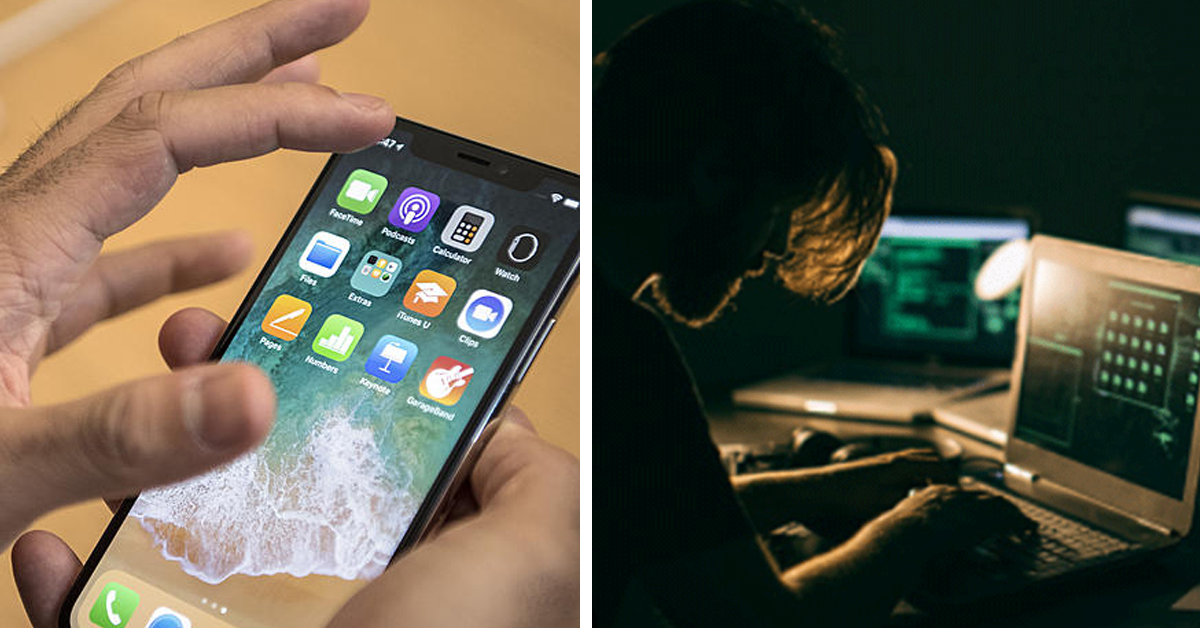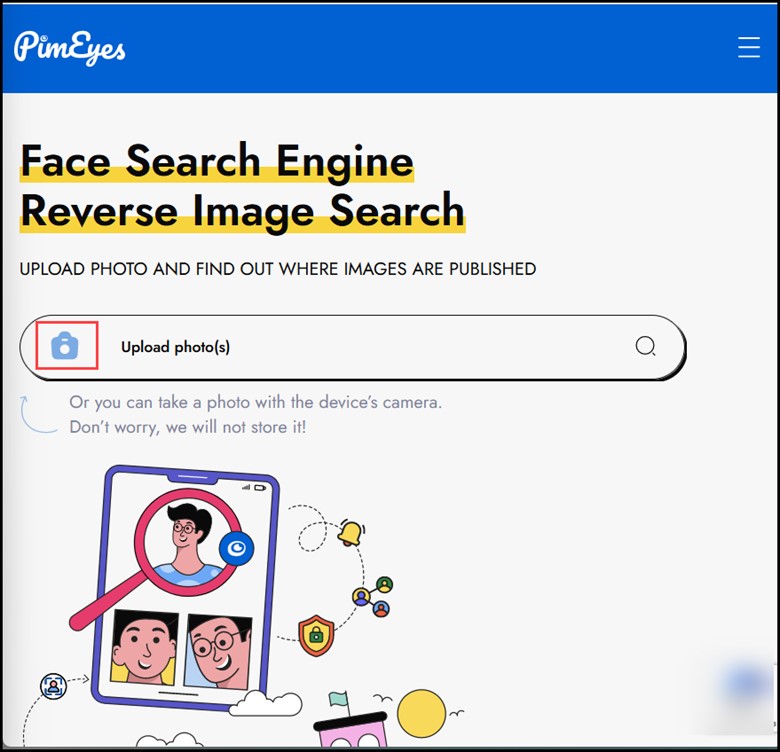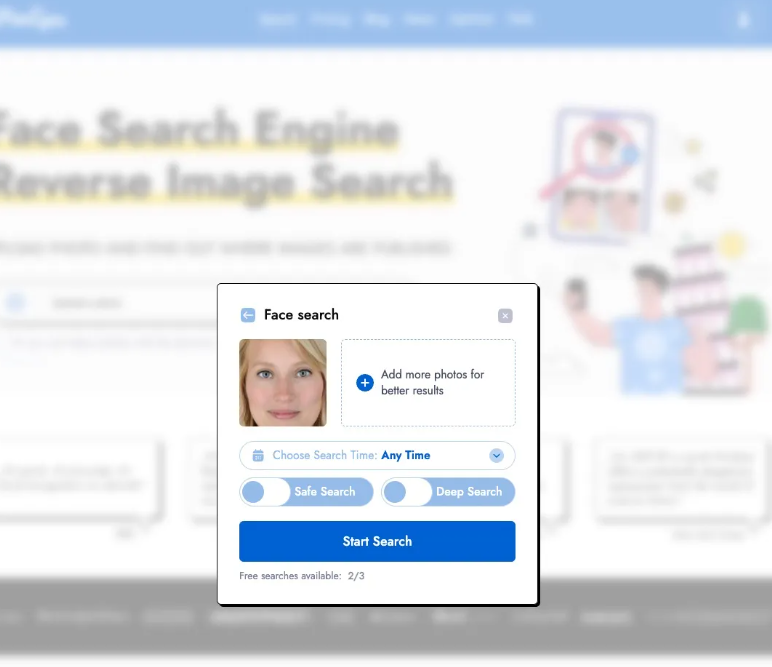
The Dark Side Of The Web: How The 'Most Disturbing Website On The Internet' Can Find Every Picture Of You
A glimpse into the unsettling reality of online privacy invasion.

In the vast expanse of the internet, there exists a corner that harbors a chilling capability: the ability to locate every single picture of you online. This ominous revelation has brought attention to what some consider the "most disturbing website on the Internet."
With concerns over privacy and digital security at an all-time high, it's imperative to understand the implications of such a tool and how it operates in the shadows of cyberspace.

With the advent of AI technology, the landscape of online image search has undergone a profound transformation. This advancement has enabled search engines to delve deeper into the vast expanse of the internet, uncovering a wealth of images with remarkable accuracy and efficiency.
Gone are the days when a simple keyword search yielded limited results; now, AI algorithms can scour the web to unearth virtually every image associated with a specific individual.
Consider the implications of this capability: every photograph you've ever posted online, from casual snapshots to professional portraits, is potentially accessible to anyone with an internet connection. The prospect of every aspect of your visual identity being cataloged and indexed online can be disconcerting, to say the least.
It raises questions about privacy, consent, and the boundaries between the digital realm and the physical world.

No longer are we talking about cherished baby photos tucked away in family albums; we're talking about a comprehensive digital archive of your entire visual history. The idea that every selfie, every vacation snapshot, every candid moment captured on camera is readily available for public consumption is, quite frankly, unnerving.
Furthermore, the implications extend beyond mere privacy concerns. The sheer volume of images circulating online presents a fertile ground for exploitation, manipulation, and abuse. From facial recognition technology to deepfake algorithms, the proliferation of digital imagery has opened the door to a host of potential threats to personal security and integrity.
In essence, the convergence of AI technology and online image search has ushered in a new era of digital surveillance and scrutiny. It challenges us to reconsider our notions of privacy, autonomy, and identity in an increasingly interconnected world. As we navigate this brave new digital landscape, it's crucial to remain vigilant, informed, and proactive in safeguarding our personal data and protecting our digital selves from unwanted scrutiny and exploitation.

A website called PimEyes has garnered attention for its role in facilitating this unsettling phenomenon, earning the moniker of 'the most disturbing website on the Internet.' Its basic premise is both simple and disconcerting: users submit a photo of themselves, and the platform scours the vast expanse of the internet and employs AI algorithms to identify any other images of the individual circulating online. Essentially, it offers users a comprehensive overview of where their images may have surfaced across the web.
What's particularly unsettling is the accessibility and ease with which this process unfolds. The basic service provided by PimEyes is free of charge, requiring nothing more than the upload of a personal photo. Within a matter of minutes, users are presented with a compilation of images depicting themselves sourced from various corners of the internet. From Facebook and LinkedIn profiles to obscure company websites and personal blogs, the breadth of sources is as extensive as it is disconcerting.
However, it's worth noting that the platform's accuracy is not infallible. While it often succeeds in identifying legitimate images of the user, there are instances where the results may include erroneous 'likenesses' or irrelevant images. Nonetheless, the overall efficacy of PimEyes in uncovering the digital footprint of individuals is undeniable, raising significant concerns about privacy, consent, and the broader implications of online image search technology.

If you're inclined to delve deeper into your digital image quest, you have the option to upgrade your search experience with PimEyes. The upgraded search offers a more comprehensive investigation, providing detailed links to every location where the identified pictures have appeared. This feature proves particularly useful for individuals seeking to take action against unauthorized or unwanted image usage.
Alternatively, PimEyes offers an 'opt-out' option for those who prefer not to appear in others' searches. However, this process requires individuals to provide a scan of their ID or passport for verification purposes, ensuring that the opt-out request is genuine.
The website's allure is undeniably intriguing, prompting many to explore the depths of their online presence. It's a sentiment shared by countless others on the internet, as evidenced by the widespread curiosity surrounding PimEyes. However, whether users are satisfied with the results of their searches is a separate matter altogether, as the outcomes may vary widely.

Opinions on the PimEyes website vary widely among users, with some describing it as 'disturbing but extremely valuable'. They appreciate its utility in identifying unauthorized use of their images online, enabling them to take action against such infringements.
However, not everyone shares this positive view, with some branding the website as a stalker's dream. They express concerns about the potential misuse of the platform for intrusive purposes.
One user recounted a particularly surprising experience with PimEyes, sharing how the website recognized a picture of them from when they were just 10 years old. This anecdote underscores the extensive reach and capabilities of the platform, leaving users both amazed and unsettled by its capabilities.
Davy







